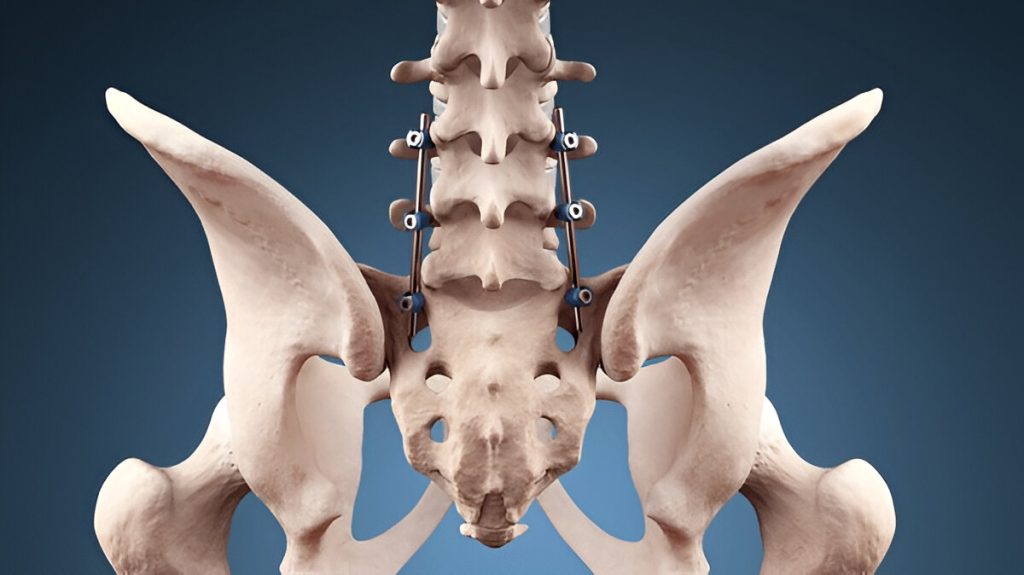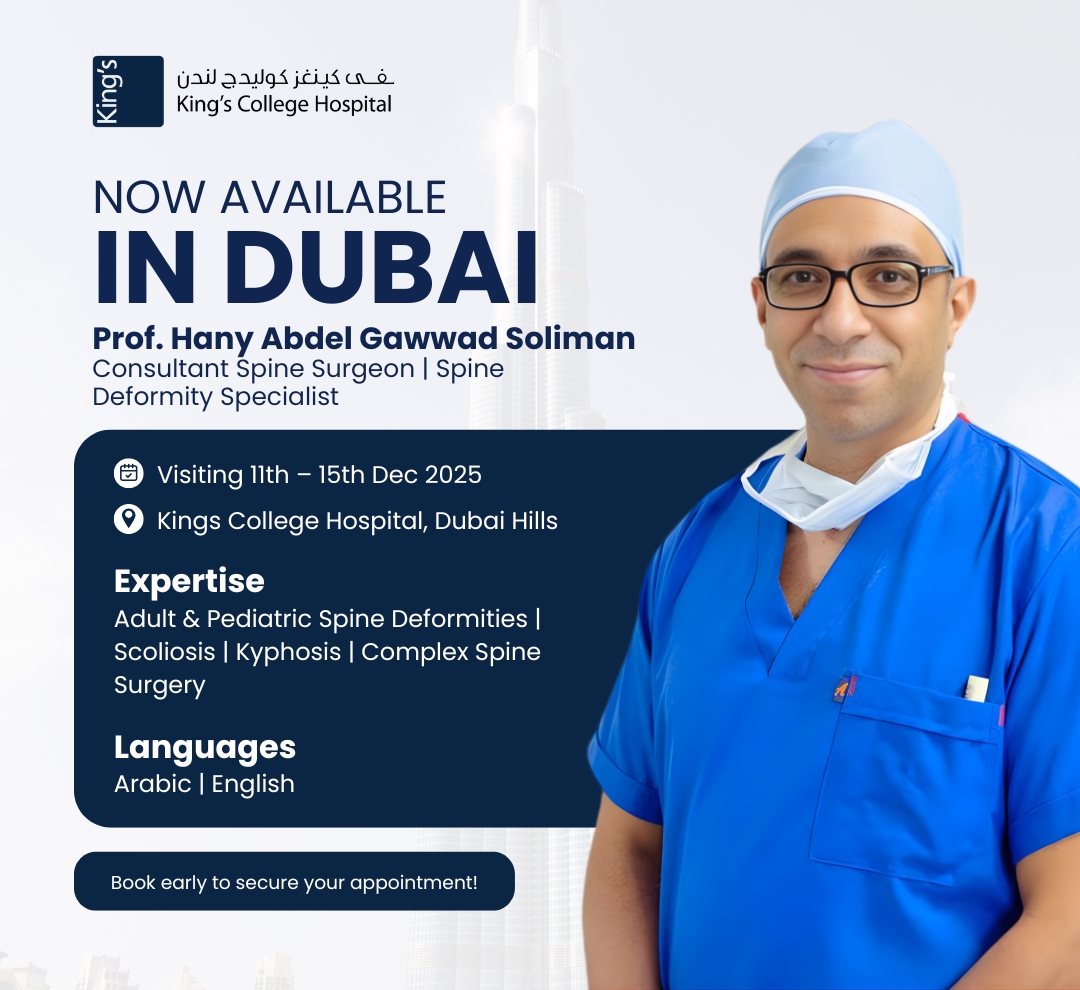How long does it take for nerves to heal after back surgery?
Recovering from spine surgery can be both a relief and a challenge. Many patients ask, how long does it take for nerves to heal after back surgery. Whether you have undergone lumbar decompression surgery, lumbar fusion surgery, ACDF or neck surgery, or other spinal procedures, nerve healing is a crucial part of recovery.
Understanding nerve regeneration after surgery, what to expect in terms of symptoms like leg pain after back surgery, and ways to support healing can help you navigate the recovery process with confidence.
Understanding Nerve Healing After Spine Surgery
Nerve recovery is not instant. Nerves regenerate at a rate of approximately one millimeter per day, which means healing can take weeks to months or even over a year. Some patients notice improvements early, while others experience persistent tingling, numbness, or weakness for several months.
If you are wondering how long does it take for nerves to heal after lumbar decompression surgery or lumbar fusion, the answer depends on several factors including:
- Type of surgery
- Extent and duration of nerve compression before surgery
- Overall health, age, and lifestyle
- Adherence to rehabilitation and postoperative care
How Long Does It Take for Nerves to Heal After Lumbar Decompression Surgery
Lumbar decompression surgery is designed to relieve pressure on spinal nerves by removing bone, disc material, or ligament tissue. Many patients ask, how long does it take for nerves to heal after lumbar decompression surgery.
Typical recovery includes:
- Initial improvement: Many patients notice some relief from leg pain or numbness within a few weeks.
- Gradual nerve regeneration: Full recovery can take 6 to 12 months, especially for nerves that were compressed for a long time.
Symptoms you might notice during recovery include:
- Tingling or pins and needles in the legs
- Intermittent burning sensations
- Slight weakness in muscles
- Gradual improvement in mobility
These are signs that nerves are healing and do not usually indicate complications.
How Long Does It Take for Nerves to Heal After Lumbar Fusion Surgery
Lumbar fusion surgery stabilizes the spine by joining two or more vertebrae together. Recovery is generally longer than decompression surgery because both the bones and nerves need time to heal.
Patients often ask, how long does it take for nerves to heal after lumbar fusion surgery. Nerve recovery after lumbar fusion typically takes 6 to 18 months, depending on factors such as age, pre-existing conditions, and severity of nerve compression.

Common symptoms during nerve healing include:
- Leg pain after back surgery
- Mild leg weakness or numbness
- Tingling sensations that come and go
It is normal for these symptoms to persist for weeks or months as the nerve gradually regenerates.
How Long Does It Take for Nerves to Heal After ACDF or Neck Spine Surgery
Cervical spine surgeries, such as ACDF (Anterior Cervical Discectomy and Fusion), are performed to relieve pressure on spinal nerves in the neck. Patients often wonder, how long does it take for nerves to heal after neck surgery.
- Improvement in pain and numbness can be noticed in a few weeks
- Full nerve recovery can take 6 to 12 months
- Some patients may experience temporary tingling or hypersensitivity as nerves regenerate
How Long Does It Take for Nerves to Heal After Laminectomy and Discectomy
Laminectomy and discectomy surgeries aim to remove pressure on spinal nerves. Nerve recovery timelines are similar to decompression surgery:
- Laminectomy recovery: Nerves may heal over 3 to 12 months, depending on severity
- Discectomy recovery: Mild cases may see improvement in weeks, while severe nerve compression may require several months
During recovery, patients often ask what does it feel like when nerves are healing after back surgery. Common sensations include tingling, itching, or mild discomfort as the nerve regains function.

Signs Your Nerves Are Healing After Spine Surgery
Recognizing signs of nerve healing after surgery can reassure you that your recovery is on track. These signs include:
- Gradual relief from radiating pain
- No pain with movements that used to cause flare-ups
- Reduced numbness and tingling
- Improved muscle strength in the affected area
- Improved mobility and range of motion in the spine
- Restored sensation in the affected area
- Hypersensitivity or mild itching in the healing area
So, what does it feel like when nerves are healing after back surgery? Interestingly, some patients report a tingling or “pins-and-needles” sensation during recovery. This occurs because regenerating nerves may fire irregularly, and the nervous system can become temporarily overactive. While the feeling may be unusual or even uncomfortable, it’s often a positive sign that nerve function is returning.
Keep in mind that not everyone will notice these signs. Nerve recovery is highly individual, and the absence of symptoms doesn’t necessarily mean healing isn’t happening.
If you’re unsure whether your symptoms reflect healing or suggest a complication, consult your surgeon for guidance and reassurance.
Factors That Influence How Long Nerves Take to Heal
Several factors can influence how long it takes for nerves to heal after back surgery:
Type of surgery
- Lumbar decompression surgery involves removing bone or disc material to relieve pressure. Many patients notice symptom relief relatively quickly, especially if nerve damage was minimal.
- Lumbar fusion surgery stabilizes the spine and may take longer to show improvement in nerve function as the spine heals and adjusts to its new alignment.
Duration of nerve compression before surgery
The longer a nerve has been compressed, the greater the potential for damage. Prolonged pressure can lead to more extensive injury, meaning a longer and sometimes less complete recovery process.

Age and overall health
Younger patients and those in overall good health tend to experience faster and more complete nerve healing.
The body’s ability to regenerate nerve tissue diminishes slightly with age and in the presence of underlying health issues.
Pre-existing medical conditions
Chronic conditions such as diabetes, peripheral neuropathy, or a history of smoking can significantly slow down nerve regeneration. These factors may also increase the risk of post-surgical complications.
Rehabilitation and postoperative care
A structured rehabilitation plan including physical therapy, appropriate pain management, and gradual return to activity—is essential for optimizing recovery.
Staying active within safe limits encourages circulation and promotes healing.
How to Support Nerve Healing After Spine Surgery
While you can’t speed up nerve regeneration drastically, you can support the healing process:
- Follow your surgeon’s instructions: Adhering to your post-op care plan—which includes medications, movement restrictions, and follow-up visits—is crucial.
- Cardiovascular exercise: Gentle activities like walking improve blood flow, which supports nerve healing and reduces inflammation.
- Physical therapy: A tailored rehabilitation program can help restore strength, mobility, and nerve function more effectively.
- Eat a nerve-friendly diet: Include foods rich in B vitamins, omega-3 fatty acids, antioxidants, and lean protein to support nerve repair.
- Prioritize high-quality sleep: Your body does most of its healing during deep sleep—aim for 7–9 hours of restful sleep each night.
- Avoid smoking and alcohol: Both smoking and alcohol consumption can impede healing and damage nerves further.
Patients often ask, what helps nerve pain after back surgery or what helps nerve pain in legs after back surgery. Using medications prescribed by your doctor, cold/heat therapy, and gentle stretching can help manage nerve-related discomfort.
Common Nerve Symptoms During Recovery
You may experience a variety of nerve symptoms as your body heals:
- Leg pain after back surgery
- Leg numbness or tingling
- Intermittent burning sensations
- Mild weakness or difficulty lifting your leg
If these symptoms worsen or are accompanied by sudden weakness, bowel, or bladder issues, contact your surgeon immediately. These may indicate nerve complications.
Nerve Recovery After Spinal Stenosis Surgery
Patients undergoing spinal stenosis surgery often ask, how long to recover from spinal stenosis surgery. Nerve recovery timelines:
- Mild compression: 3 to 6 months
- Severe or chronic compression: 6 to 12 months
Possible Complications and Permanent Nerve Damage

Although most patients recover, some may experience permanent nerve damage after spinal fusion or decompression surgery. Risk factors include:
- Long-term nerve compression prior to surgery
- Severe nerve injury during surgery
- Pre-existing health conditions
Symptoms of permanent damage may include persistent numbness, weakness, or tingling that does not improve with time.
Comprehensive Spine Care at King’s Spine Centre, Dubai
King’s Spine Centre in Dubai delivers specialized care for patients undergoing spine surgery, ensuring a smooth and effective recovery journey. Our team provides personalized recovery plans for individuals recovering from:
Lumbar decompression surgery
Lumbar fusion surgery
ACDF or cervical spine surgery
Discectomy and laminectomy
By combining surgical expertise, targeted physical therapy, and rehabilitation guidance, we focus on nerve healing after back surgery and help patients achieve optimal functional recovery.
Take the next step toward lasting relief and improved mobility—book your consultation today.
FAQ
Typically 6 to 12 months, though improvement in symptoms may appear within weeks.
Nerve recovery can take 6 to 18 months as both the spine and nerves require healing.
Regenerating nerves can fire irregularly, causing fluctuating symptoms like tingling, zapping, or mild discomfort—it’s often a sign of healing.
If pain worsens, spreads, or is paired with weakness or bowel/bladder issues, seek medical attention promptly.
Yes. Leg pain or tingling may persist as nerves heal. It usually improves over time, but sudden or worsening pain should be discussed with your doctor.
Manage leg pain with prescribed medications, cold/heat therapy, gentle stretching, physical therapy, and short walks. Avoid activities that strain your back, and consult your surgeon if the pain persists or worsens.
Nerve regeneration is slow, often taking several months to a year depending on the severity of nerve injury.
Early signs may include tingling, pins-and-needles sensations, hypersensitivity, or gradual return of sensation and muscle strength in the affected area.
In some cases, nerves can fully recover, especially if the compression was relieved early. However, severe or long-term nerve damage may lead to incomplete recovery.
Yes, targeted physical therapy can promote better circulation, reduce scar tissue, and support muscle and nerve recovery.
Often, yes. Tingling or a “pins-and-needles” sensation can indicate nerve regeneration and returning function.
Many patients notice significant improvements within 6 months, but nerve healing can continue for up to 18–24 months or longer.
If symptoms persist or worsen, it’s essential to follow up with your spine surgeon. They may recommend imaging, nerve testing, or changes to your treatment plan.
Yes, mild to moderate leg pain is common and usually improves over time.
Tingling, pins and needles, mild itching, and intermittent burning sensations are typical.
Medications, gentle stretching, physical therapy, and walking support nerve healing and symptom relief.
Yes, nerves can regenerate, but full recovery depends on the extent of damage.
Pain can persist from a few weeks to several months. Recovery is gradual.
Gradual relief of pain, decreased numbness, improved strength, and tingling sensations indicate nerve recovery.
Medical Disclaimer
This blog is for informational purposes only and is not a substitute for professional medical advice, diagnosis, or treatment. Always consult your physician or a qualified healthcare provider regarding any medical questions or concerns.
Review Note
This content has been medically reviewed by the spine care team at King’s Spine Centre, Dubai, to ensure accuracy and relevance. Our team follows evidence-based guidelines and uses advanced diagnostic tools such as MRI and CT scans to evaluate spinal conditions.


